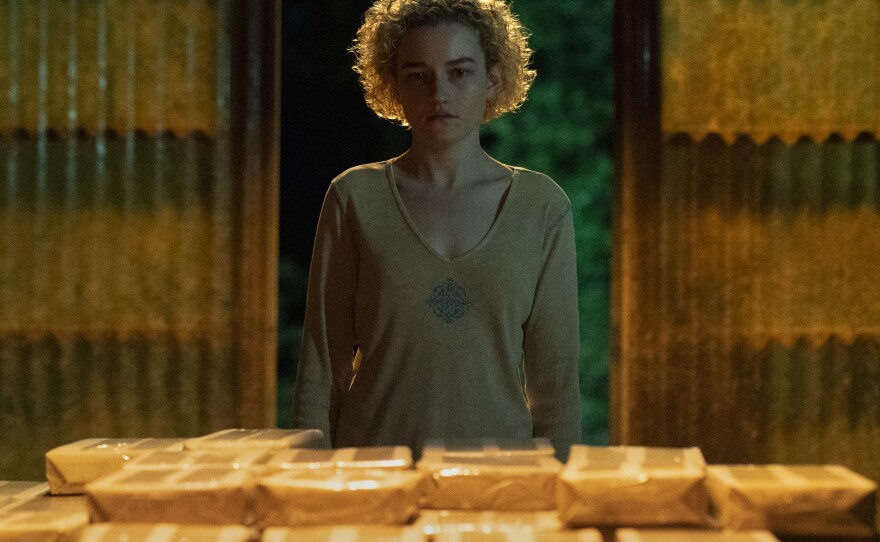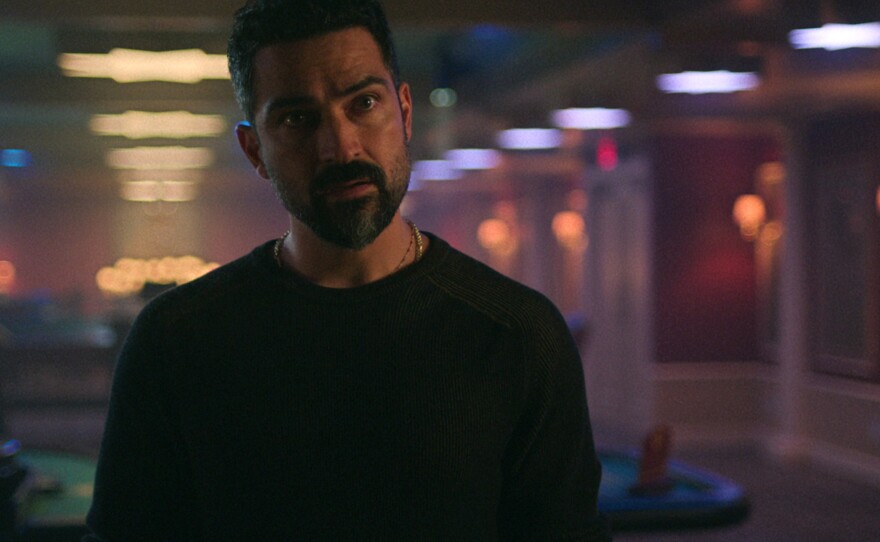It is an odd thing, to write an appreciation for a series when you're not entirely sure if it is a great television show.
And yet, here I am, dissecting the complicated legacy of Netflix's Ozark, which drops its final seven episodes on the streamer today.
I've been a fan of the show since its very first episode in 2017, when Jason Bateman offered a compelling and resonant portrait of a man under serious pressure: Marty Byrde, a financial manager and secret money launderer for a Mexican drug cartel is forced to move his family to the Ozarks after his business partner tries ripping off their boss and gets killed for his trouble.
But now that we are near the end of that journey, it's likely Ozark will be remembered more as a clever thrill ride – a captivating collection of showcase scenes for a cadre of superior actors – than a series with a coherent message.
And that's a shame, because the difference between good and great for this series can be measured in the way it has morphed from an intriguing character study into a series of escalating and increasingly outlandish threats to a family sinking into a morass of criminality. Kinda like "Breaking Bad: The Family Edition."
Marty's mission early on was to launder $500 million in five years, to prove he was indispensable to the cartel and uninvolved with his partner's skimming. When the show first began, his kids were clueless about what their father really did for a living and his wife Wendy, played by a resilient, acerbic Laura Linney, was mostly focused on holding the family together.
What a difference four seasons can make.
A family steeped in criminality
As the show's final episodes drop today, the Byrde family is fully immersed in a complicated scheme to free cartel leader Omar Navarro from federal custody, neutralize his smart, ruthless nephew Javier, establish themselves as powerhouse (completely legitimate) philanthropists and repair a rift between Wendy and the kids caused by her decision last season to engineer the murder of her brother, Ben.

There's more: Julia Garner's tough-as-nails Ruth Langmore – a character who started as Marty's sometime assistant, before falling in love with Ben and splitting with the Byrdes over his death — is distraught over the murder of her cousin Wyatt by Javier, vowing revenge against him and the Byrdes.
It's a lot – even on a show known for giving viewers quite a lot.
Netflix released every episode of this final batch to critics in advance, so I have seen the series finale. To be honest, I didn't like it as much as I hoped I would. Shows which have as many plotlines in motion as Ozark can feel rushed in their final episodes as they plow through circumstances to reach the finish line.
This is especially true for Ozark, because so much of its appeal springs from the kinetic pace of deadly obstacles thrown at the Byrdes. In just one episode from earlier in the season, Wendy and Marty recover from seeing Navarro's lawyer shot in the head (washing her brains and blood out of their hair), only to meet Javier, who heads to the Ozarks and kills the local sheriff, just as a private investigator shows up looking for Navarro's now-missing attorney.
When one of the biggest attractions of a series is its forward motion, any move toward a conclusion can feel anticlimactic.
Ozark's frenetic pace also keeps you from thinking too much about how nonsensical the plotlines have become. Consider this storyline from the final batch of episodes: To keep her children from leaving town to live with her father, Wendy checks herself into a mental hospital.
But she's already noted the family is days away from a big gala intended to establish their charitable foundation and can't afford to spook big donors with any whiff of scandal. So why is she willing to risk news getting out that the organizer of the foundation checked herself into a mental hospital just before a huge event?
In another moment, Marty threatens to tell a cartel bigwig something about Ruth that would get her killed – exactly what is a bit of a spoiler — unless she steps in to help convince their kids not to leave with Wendy's father. After Ruth takes action, Marty visits her again and the two share a laugh over their bizarre history – even though she still partially blames the Byrdes for her cousin's death and also blames Wendy for having her father killed.
That's part of what makes Ozark so tough to swallow, sometimes. Characters often act in ways that don't make a lot of sense, mostly to move the plot from one point to another, or to get two characters together in a powerful scene.
It's also a by-product of storytelling in the age of Netflix, where producers expect fans to consume multiple episodes at one sitting, requiring a steady stream of revelations and twists across a great span of installments to keep things moving along.
The story 'Ozark' is really telling
There are some big deaths in the series' finale (again, saying who would be a spoiler). And it's true that Ozark's high death toll has turned watching the series into a guessing game about who gets whacked next – including what happened after the family got in a massive car crash, a flash forward that kicked off the current season.
But those deaths also serve to concentrate the show's focus on the family. Ozark has a lot of in common with Breaking Bad, but one place where it diverges is in the impact of criminality on a family. On AMC's legendary hit drama, Bryan Cranston's Walter White justifies his turn from high school science teacher to methmaking mastermind by insisting he was doing it to secure his family – until he was forced to admit his actions atomized his family and he did it all to validate himself.
Ozark is telling a different story. Here, I think criminality ultimately unites the Byrdes – you'll see how, when you watch the final episode – sending a message about how some people can succeed in the face of rampant wrongdoing that feels depressingly true to our times.

I'm also troubled by the show's treatment of characters of color. Nevermind that all the Latinx characters are murderous cartel members — in particular, Alfonso Herrera's magnetic take on handsome, smooth-talking psychopath Javier reflects an emerging character trope I've also seen on Breaking Bad spinoff Better Call Saul, in Tony Dalton's handsome, smooth-talking psychopath cartel leader Lalo Salamanca. What few Black characters the show has had are basically sidelined in this last batch of episodes, limiting the range of people we see in odd ways.
In the end, right down to the final scene – which feels like a bit of a callback to The Sopranos finale, I'll be honest – I did still care about these characters. I wanted to see who lived, who died and how their stories ended, regardless of all the reasons I had to dismiss what was going on.
That's a tribute to the actors, including an increasingly powerful Linney as the most ruthless member of the Byrde family and Garner, whose reveals of the emotive heart underneath Ruth's spitfire façade have been particularly captivating this season. (A special shout out to Richard Thomas, who TV fans will know as wholesome John-Boy Walton from the '70s-era family drama The Waltons, who excels here playing Wendy's hypocritical and secretly abusive father.)
Let's also tip a cap to all the great actors whose characters got whacked along the way, from Esai Morales' cartel underboss Del Rio to Janet McTeer's ill-fated attorney Helen Pierce and Tom Pelphrey's woefully overlooked turn as Ben – a character with bipolar disorder who saw the true horror of the Byrde family business clearer than any of them.
These actors and the wonderfully delicious circumstances producers put them in, kept me watching every second of every Ozark episode, even when aspects of show didn't quite meet the definition of exceptional TV.
And it's also why I'll miss the series, which somehow found a way to make a family's descent into ruthlessness entertaining, compelling and telling, all at once.
Copyright 2023 NPR. To see more, visit https://www.npr.org. 9(MDAzMjM2NDYzMDEyMzc1Njk5NjAxNzY3OQ001))







